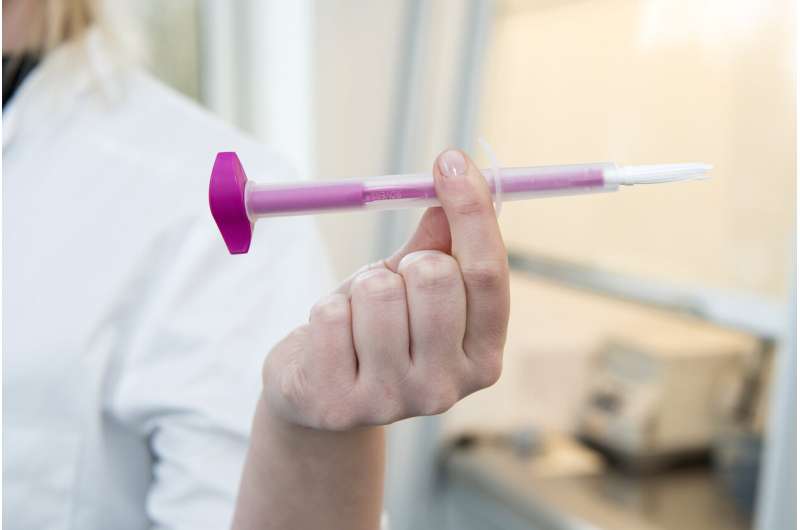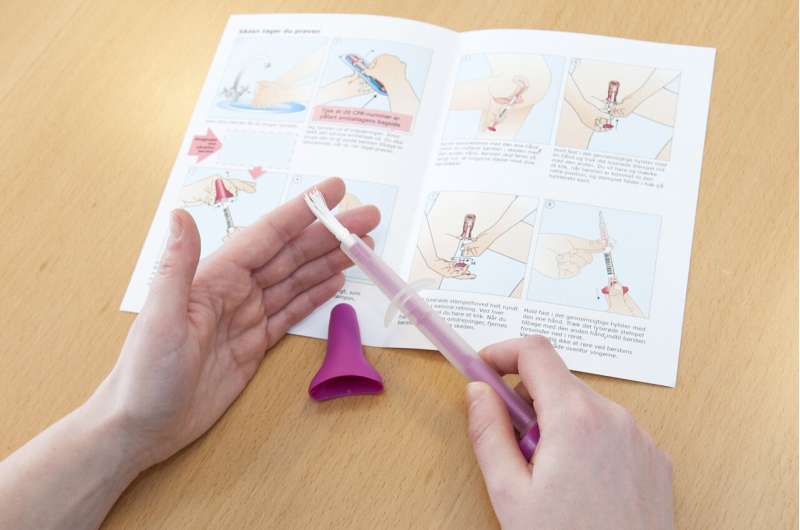This article has been reviewed according to Science X's editorial process and policies. Editors have highlighted the following attributes while ensuring the content's credibility:
fact-checked
peer-reviewed publication
trusted source
proofread
Study supports 'catch up' HPV test in older women

For women over the age of 65 who have never had a high-risk human papillomavirus (HPV) test, a "catch up" HPV screening intervention may improve cervical cancer prevention by detecting more cervical pre-cancer lesions as compared to women not offered screening.
That is the conclusion of a new study published in the open access journal PLOS Medicine by Mette Tranberg, University Research Clinic for Cancer Screening, Randers Regional Hospital, Denmark, and colleagues.
High-risk HPV test is replacing cytology as the primary cervical cancer screening test in most countries, but many women over 65 years have never had an HPV test. Controversy remains on whether and how these women should be offered a catch-up HPV test to prevent cancer at older ages.
Denmark has a free-of-charge cervical cancer screening program aimed at women up to age 64. The new study included all 65- to 69-year-old women in Denmark who had no record of cervical cancer screening in the preceding 5.5 years and no record of an HPV test at ages 60 to 64.
A total of 11,192 eligible women residing in one region were invited to participate in HPV-based cervical cancer screening, by either booking an appointment (at the general practitioner to have a cervical cytology sample collected) or ordering a vaginal self-sampling kit. Eligible women (33,387) in the four remaining regions of Denmark were assigned to a control group where they received no screening invitation but had the opportunity to have an opportunistic cervical cytology sample collected for whatever reason.
Among all participants, rates of diagnosed cervical intraepithelial neoplasia (CIN) grade two or worse (CIN2+) were tracked for at least 13 months.

Among women in the intervention group, 6,965 (62.2%) were screened within 12 months; among those in the control group, 743 (2.2%) had a cervical cytology collected. The rate of CIN2+ detection was 3.9 cases per 1,000 eligible women in the intervention group (95% CI 2.9,5.3, p<0.001) compared to 0.3 cases per 1,000 eligible women in the control group (95% CI 0.2,0.6).
The study also demonstrated that women who have been insufficiently screened at age 50–64 had higher HPV prevalence and tended to have more CIN2+ lesions diagnosed compared to sufficiently screened women, and that insufficiently screened women were more likely to request vaginal self-sampling— supporting the idea that this screening modality might be ideal for this population.
Tranberg adds, "A catch-up HPV screening test could potentially improve cervical cancer prevention in women aged 65 years and older who have never had an HPV test. Older insufficiently screened women were more likely to self-collect a vaginal sample for HPV testing in their own home as compared to sufficiently screened women; hence this screening modality could be ideal to identify older women at risk of cervical cancer."
More information: Tranberg M, Petersen LK, Hammer A, Elfström M, Blaakær J, Jørgensen SF, et al. PLoS Medicine (2023). DOI: 10.1371/journal.pmed.1004253 , journals.plos.org/plosmedicine … journal.pmed.1004253



















